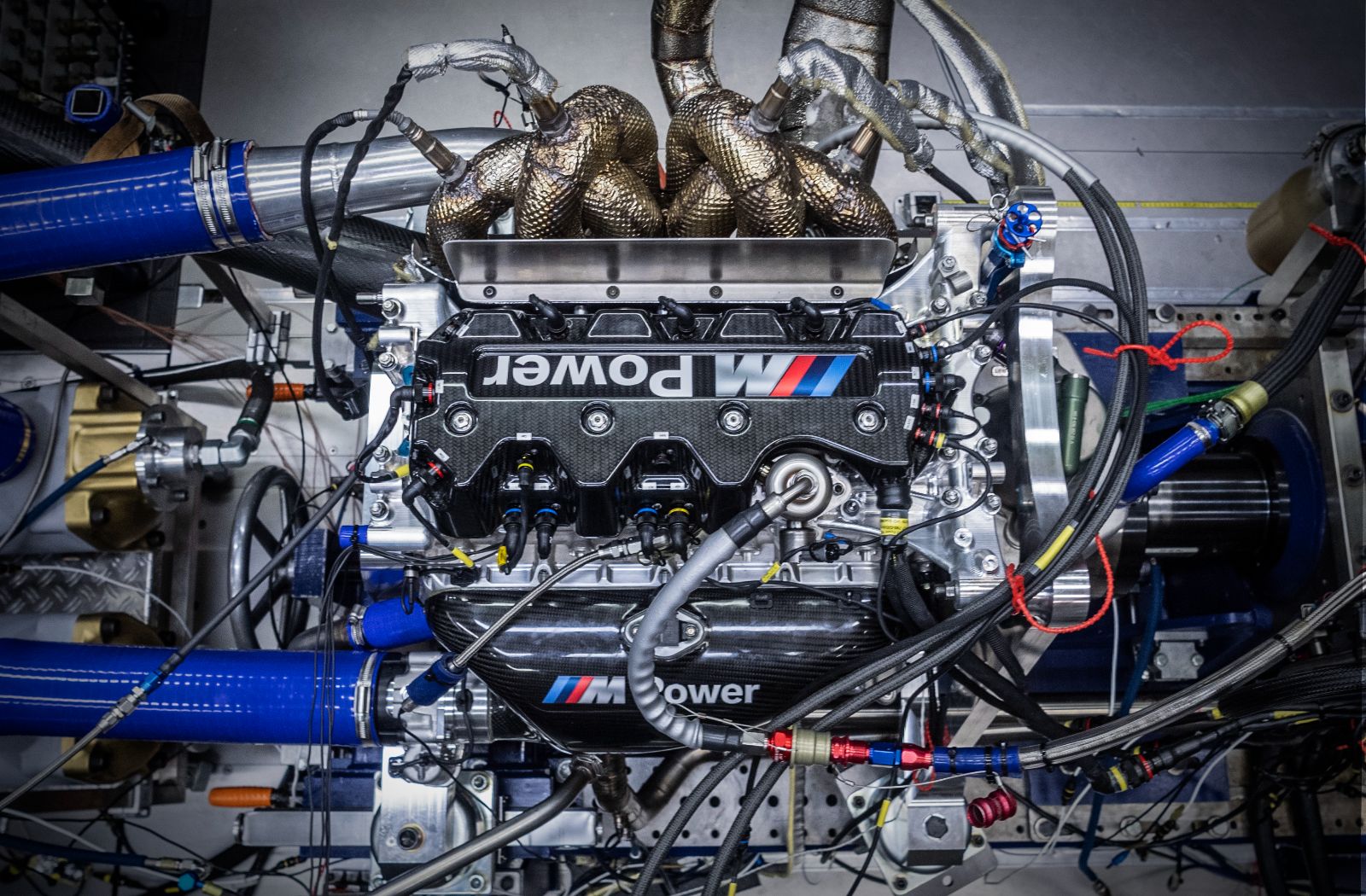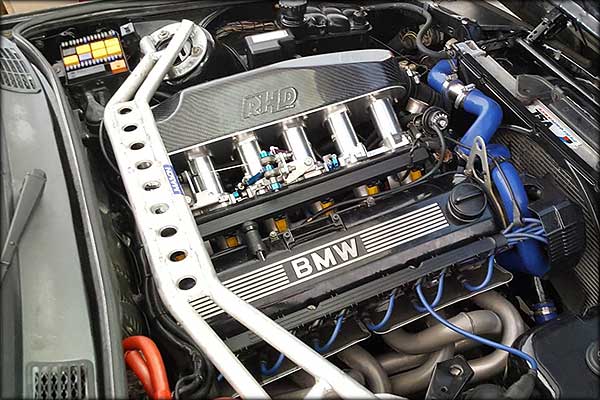A Beginner's Overview to Picking the Right BMW Engine for Your Demands
A Beginner's Overview to Picking the Right BMW Engine for Your Demands
Blog Article
Introducing the Intricacies of Next-Generation Power Units: a Deep Dive Into Advanced Engine Designs and Advancements
In the realm of automobile engineering, the relentless pursuit of sustainability, efficiency, and efficiency has actually propelled the evolution of power systems to extraordinary elevations. As we depend on the precipice of a brand-new age in transport, the ins and outs of next-generation engine styles beckon us to explore the cutting-edge modern technologies and technologies that assure to redefine the driving experience. From innovative materials that press the limits of resilience and weight reduction to innovative turbocharging and turbo charging systems that raise power output to brand-new degrees, each component of these power devices holds a crucial to opening the future of automobile engineering. Delving much deeper into the worlds of discharge control, smart engine monitoring systems, and the horizon of power device advancement, we find ourselves on the cusp of a makeover that guarantees to reshape the landscape of flexibility as we understand it.
Evolution of Engine Materials

The shift towards advanced engine materials has actually additionally enabled engineers to create engines with greater power results while keeping gas efficiency requirements. As an example, using light-weight materials minimizes the general weight of the engine, leading to improved fuel economic climate and reduced discharges. Furthermore, improvements in products technology have permitted far better thermal monitoring within engines, causing boosted integrity and long life.
Turbocharging and Supercharging Technologies
Just How do Turbocharging and Supercharging Technologies reinvent engine performance and performance in modern-day lorries? Turbocharging and turbo charging are technologies that dramatically boost engine efficiency by enhancing the amount of air consumption into the burning chamber. Turbocharging accomplishes this by using a generator driven by exhaust gases to pressurize the consumption air, while supercharging utilizes a belt- or chain-driven compressor to achieve the exact same effect.
These modern technologies allow smaller, a lot more fuel-efficient engines to produce power equivalent to larger ones, referred to as downsizing. Forcibly more air into the cylinders, turbo charging and turbocharging improve burning efficiency, causing boosted horsepower and torque result without a significant rise in engine size. This causes far better velocity, towing capability, and total driving performance.
Additionally, turbocharging and supercharging add to improved fuel performance by allowing the use of smaller sized engines that consume less gas under regular driving conditions - bmw engine. This combination of improved performance and effectiveness has actually made turbocharging and supercharging essential elements of several modern-day engine designs
Exhaust Control and Environmental Impact
With enhancing international concerns concerning air high quality and ecological sustainability, the implementation of discharge control modern technologies in lorries plays a vital duty in reducing dangerous toxins launched into the ambience. Modern cars are outfitted with advanced exhaust control systems that assist decrease the ecological influence of automotive operations. Catalytic converters, for example, are designed to convert harmful gases such as carbon monoxide, nitrogen oxides, and hydrocarbons into less damaging compounds like co2 and water vapor.
In addition, innovations in engine technology, such as the assimilation of exhaust gas recirculation systems and discerning catalytic decrease, have actually significantly added to lowering exhausts. These modern technologies function in tandem to enhance combustion efficiency and minimize the launch of unsafe contaminants into the air. In addition, the development of crossbreed and electrical lorries stands for a critical action in the direction of minimizing the general environmental impact of the transportation field.
Intelligent Engine Administration Systems

Moreover, these systems allow automobiles to fulfill rigid emissions criteria without compromising performance, supplying a more eco-friendly driving experience. The assimilation of expert system and equipment knowing capabilities in engine administration systems proceeds to push the limits of what is feasible, bring about additional renovations in efficiency, dependability, and overall automobile efficiency. bmw engine. As automobile modern technology advancements, smart engine administration systems will certainly play an important duty in shaping the future of transport in the direction of a much more effective and lasting instructions
Future Trends in Power Unit Advancement
As smart engine administration systems lead the method for improved control and optimization in contemporary cars, future trends in power unit advancement are positioned to redefine the landscape of vehicle propulsion innovations. These alternate power sources offer improved efficiency and efficiency while straightening with rigorous ecological guidelines.
One more substantial fad is the assimilation of innovative materials and manufacturing strategies. Light-weight products such as carbon fiber and light weight aluminum are being utilized to reduce total automobile weight, improving fuel efficiency and performance. In addition, innovations in 3D printing and additive manufacturing are enabling the manufacturing of complicated engine parts with greater accuracy and find here longevity.
In addition, expert system and equipment understanding are playing an essential duty in enhancing power unit efficiency. These technologies enable real-time surveillance and flexible control, leading to a lot more efficient and reliable power shipment. On the whole, future trends in power device development are tailored in the direction of performance, sustainability, and performance, driving the automobile market in the direction of a new period of propulsion innovations.

Verdict
In final thought, the innovations in engine materials, turbocharging, discharge control, and intelligent administration systems have actually led the way for next-generation power systems. The complex layouts and innovations in contemporary engines display the recurring evolution of automobile innovation.
Checking out the dynamic developments in engine products has actually been crucial in enhancing the performance and efficiency of modern engines. Over the years, the development of engine products has actually played an important function in pushing the limits of what engines can accomplish.The shift in the direction of progressed engine materials has also made it possible useful source for designers to make engines with higher power results while keeping fuel effectiveness criteria.The application of smart engine administration systems in contemporary lorries has actually reinvented the method engines are managed and optimized for performance and efficiency. By collecting information in real-time and evaluating it with innovative formulas, intelligent engine administration systems can adjust to driving styles, environmental elements, and engine health to maximize power outcome while decreasing gas consumption and emissions.
Report this page